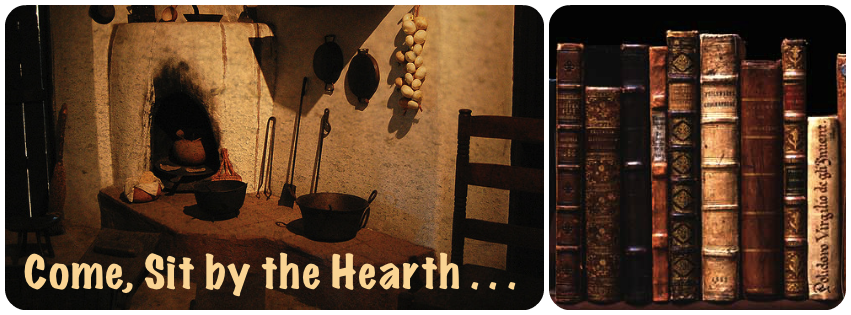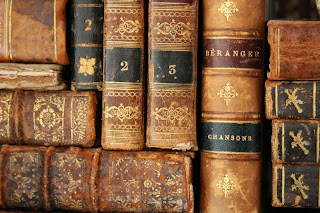Here are a few highlights. I just pulled out some pieces that spoke to me, and have noted the missing bits with ellipses. If you wish to read the entire speech, click on this link.
THE PRESIDENT: Your Majesties, Your Royal Highnesses, distinguished members of the Norwegian Nobel Committee, citizens of America, and citizens of the world:
I receive this honor with deep gratitude and great humility. It is an award that speaks to our highest aspirations -- that for all the cruelty and hardship of our world, we are not mere prisoners of fate. Our actions matter, and can bend history in the direction of justice. . . .
. . . I come here with an acute sense of the costs of armed conflict -- filled with difficult questions about the relationship between war and peace, and our effort to replace one with the other. . . .
. . . We must begin by acknowledging the hard truth: We will not eradicate violent conflict in our lifetimes. . . .
I make this statement mindful of what Martin Luther King Jr. said in this same ceremony years ago: "Violence never brings permanent peace. It solves no social problem: it merely creates new and more complicated ones."
As someone who stands here as a direct consequence of Dr. King's life work, I am living testimony to the moral force of non-violence. I know there's nothing weak -- nothing passive -- nothing naïve -- in the creed and lives of Gandhi and King. . . .
. . . [W]e seek a better future for our children and grandchildren, and we believe that their lives will be better if others' children and grandchildren can live in freedom and prosperity.
So yes, the instruments of war do have a role to play in preserving the peace. And yet this truth must coexist with another -- that no matter how justified, war promises human tragedy. The soldier's courage and sacrifice is full of glory, expressing devotion to country, to cause, to comrades in arms. But war itself is never glorious, and we must never trumpet it as such. . . .
Furthermore, America -- in fact, no nation -- can insist that others follow the rules of the road if we refuse to follow them ourselves. For when we don't, our actions appear arbitrary and undercut the legitimacy of future interventions, no matter how justified. . . .
. . . Inaction tears at our conscience and can lead to more costly intervention later. . . .
. . . America alone cannot secure the peace. . . . .
Let me make one final point about the use of force. Even as we make difficult decisions about going to war, we must also think clearly about how we fight it. . . .
Where force is necessary, we have a moral and strategic interest in binding ourselves to certain rules of conduct. . . . We lose ourselves when we compromise the very ideals that we fight to defend. (Applause.) And we honor -- we honor those ideals by upholding them not when it's easy, but when it is hard. . . .
First, in dealing with those nations that break rules and laws, I believe that we must develop alternatives to violence that are tough enough to actually change behavior -- for if we want a lasting peace, then the words of the international community must mean something. Those regimes that break the rules must be held accountable. . . .
. . . When there is genocide in Darfur, systematic rape in Congo, repression in Burma -- there must be consequences. . . . And the closer we stand together, the less likely we will be faced with the choice between armed intervention and complicity in oppression.
. . . For peace is not merely the absence of visible conflict. Only a just peace based on the inherent rights and dignity of every individual can truly be lasting.
It was this insight that drove drafters of the Universal Declaration of Human Rights after the Second World War. In the wake of devastation, they recognized that if human rights are not protected, peace is a hollow promise. . . .
. . . I believe that peace is unstable where citizens are denied the right to speak freely or worship as they please; choose their own leaders or assemble without fear. Pent-up grievances fester, and the suppression of tribal and religious identity can lead to violence. We also know that the opposite is true. Only when Europe became free did it finally find peace. America has never fought a war against a democracy, and our closest friends are governments that protect the rights of their citizens. No matter how callously defined, neither America's interests -- nor the world's -- are served by the denial of human aspirations.
So even as we respect the unique culture and traditions of different countries, America will always be a voice for those aspirations that are universal. We will bear witness to the quiet dignity of reformers like Aung Sang Suu Kyi; to the bravery of Zimbabweans who cast their ballots in the face of beatings; to the hundreds of thousands who have marched silently through the streets of Iran. It is telling that the leaders of these governments fear the aspirations of their own people more than the power of any other nation. And it is the responsibility of all free people and free nations to make clear that these movements -- these movements of hope and history -- they have us on their side.
Let me also say this: The promotion of human rights cannot be about exhortation alone. At times, it must be coupled with painstaking diplomacy. I know that engagement with repressive regimes lacks the satisfying purity of indignation. But I also know that sanctions without outreach -- condemnation without discussion -- can carry forward only a crippling status quo. No repressive regime can move down a new path unless it has the choice of an open door. . . .
Third, a just peace includes not only civil and political rights -- it must encompass economic security and opportunity. For true peace is not just freedom from fear, but freedom from want.
It is undoubtedly true that development rarely takes root without security; it is also true that security does not exist where human beings do not have access to enough food, or clean water, or the medicine and shelter they need to survive. It does not exist where children can't aspire to a decent education or a job that supports a family. The absence of hope can rot a society from within. . . .
. . . [G]iven the dizzying pace of globalization, the cultural leveling of modernity, it perhaps comes as no surprise that people fear the loss of what they cherish in their particular identities -- their race, their tribe, and perhaps most powerfully their religion. . . . We see it in the Middle East, as the conflict between Arabs and Jews seems to harden. We see it in nations that are torn asunder by tribal lines.
And most dangerously, we see it in the way that religion is used to justify the murder of innocents by those who have distorted and defiled the great religion of Islam, and who attacked my country from Afghanistan. These extremists are not the first to kill in the name of God; the cruelties of the Crusades are amply recorded. But they remind us that no Holy War can ever be a just war. For if you truly believe that you are carrying out divine will, then there is no need for restraint -- no need to spare the pregnant mother, or the medic, or the Red Cross worker, or even a person of one's own faith. Such a warped view of religion is not just incompatible with the concept of peace, but I believe it's incompatible with the very purpose of faith -- for the one rule that lies at the heart of every major religion is that we do unto others as we would have them do unto us.
. . . But we do not have to think that human nature is perfect for us to still believe that the human condition can be perfected. We do not have to live in an idealized world to still reach for those ideals that will make it a better place. The non-violence practiced by men like Gandhi and King may not have been practical or possible in every circumstance, but the love that they preached -- their fundamental faith in human progress -- that must always be the North Star that guides us on our journey.
For if we lose that faith -- if we dismiss it as silly or naïve; if we divorce it from the decisions that we make on issues of war and peace -- then we lose what's best about humanity. We lose our sense of possibility. We lose our moral compass.
Like generations have before us, we must reject that future. As Dr. King said at this occasion so many years ago, "I refuse to accept despair as the final response to the ambiguities of history. I refuse to accept the idea that the 'isness' of man's present condition makes him morally incapable of reaching up for the eternal 'oughtness' that forever confronts him."
Let us reach for the world that ought to be -- that spark of the divine that still stirs within each of our souls. (Applause.)
Somewhere today, in the here and now, in the world as it is, a soldier sees he's outgunned, but stands firm to keep the peace. Somewhere today, in this world, a young protestor awaits the brutality of her government, but has the courage to march on. Somewhere today, a mother facing punishing poverty still takes the time to teach her child, scrapes together what few coins she has to send that child to school -- because she believes that a cruel world still has a place for that child's dreams.
Let us live by their example. We can acknowledge that oppression will always be with us, and still strive for justice. We can admit the intractability of deprivation, and still strive for dignity. Clear-eyed, we can understand that there will be war, and still strive for peace. We can do that -- for that is the story of human progress; that's the hope of all the world; and at this moment of challenge, that must be our work here on Earth.
Thank you very much. (Applause.)
END
2:20 P.M. CET
Wow! There's still a lot left.
He acknowledges the criticisms hurled at him when it was first announced that he had won, and he answers them. He also calls the country, and the world, to an increase in faith, respect, responsibility, and action, by evoking what we know as the Golden Rule. Definitely good words to live by. I tried to instill them in my children as they were growing up.
I posted a multi-cultural poster of the Golden Rule late last month. Click on the 'Golden Rule' to go see it.














































